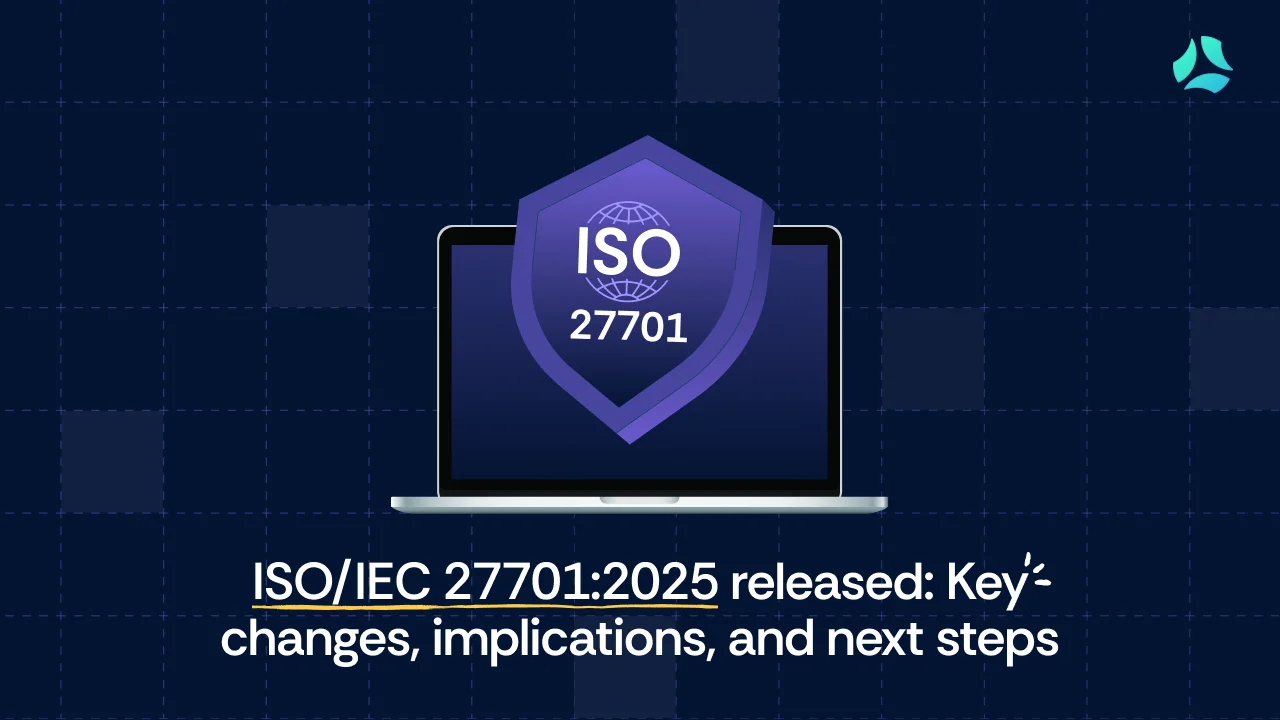COPPA Compliance Made Simple: Ensuring Children's Online Privacy

Protecting the privacy of young users is a growing responsibility for businesses offering online services. If your organization collects, uses, or shares personal information from children under 13 years old in the United States, compliance with the Children's Online Privacy Protection Act (COPPA) is mandatory. With hefty penalties for non-compliance and increasing parental scrutiny, COPPA compliance is not just about meeting legal obligations—it's about building trust.
To make this process seamless, Scrut is excited to introduce COPPA Compliance as the latest framework within our compliance automation platform. Here's how Scrut empowers you to protect your platform's young users, mitigate organizational risks, and simplify your journey toward compliance.
What is COPPA, and Why Does It Matter?
Enacted in 1998, COPPA governs how businesses collect and manage data from children under 13 years old. It requires parental consent for data collection and mandates stringent measures to protect personal information. Key areas of compliance include:
- Clear privacy notices that are written in simple, child-friendly language.
- Transparent data collection practices and obtaining verifiable parental consent.
- Secure storage, usage, and deletion of children's data.
- Failing to comply with COPPA can result in substantial fines and reputational damage.
In recent years, companies like TikTok and YouTube have faced millions of dollars in penalties for COPPA violations, underscoring the importance of a proactive approach to compliance.
The Challenges of COPPA Compliance
COPPA compliance is notoriously complex. Organizations must navigate legal requirements while implementing robust operational and technical safeguards, such as:
- Parental Consent Processes: Ensuring consent workflows are verifiable and aligned with COPPA guidelines.
- Data Minimization: Limiting the collection of personal information to what's necessary for the service.
- Ongoing Monitoring: Continuously auditing data practices to ensure compliance is maintained.
For businesses with multiple digital properties, managing these obligations across platforms can become overwhelming.
Scrut's COPPA Framework: Simplify Compliance, Protect Privacy
Scrut's COPPA Compliance Framework is purpose-built to help businesses like yours navigate these challenges with ease. Here's how we make compliance accessible, efficient, and stress-free:
1. Pre-Built Policies and Controls
Scrut provides you with an exhaustive set of pre-built policies tailored to COPPA requirements, ensuring you don't have to start from scratch. These templates include data collection workflows, parental consent processes, and secure data storage guidelines designed for immediate implementation.
2. Automated Evidence Collection
Manual evidence collection is time-consuming and prone to errors. Scrut automates the collection of compliance evidence, from logging consent records to tracking user interactions. This ensures you're always audit-ready without extra effort.
3. Continuous Monitoring and Alerts
Scrut continuously monitors your compliance posture, identifying gaps and vulnerabilities in real time. Customizable alerts ensure that you can take swift action to address potential non-compliance before it becomes a liability.
4. Cross-Framework Efficiency
Many businesses already comply with regulations like GDPR or CCPA. The Scrut platform allows you to leverage existing evidence and controls, reducing duplication of effort and ensuring operational efficiency.
5. Expert Guidance and Support
Scrut's team of compliance experts is always on hand to help you interpret COPPA's requirements and implement best practices. Whether it's refining your privacy notices or setting up a foolproof consent mechanism, we've got your back.
Why COPPA Compliance is a Competitive Advantage
Investing in COPPA compliance isn't just about risk mitigation-it's a strategic opportunity, that plays out in the following ways.
- Enhanced Customer Trust: Parents value transparency and privacy. Meeting and exceeding COPPA requirements shows that your business is committed to safeguarding children's information.
- Stronger Brand Reputation: Proactive compliance positions your company as a responsible and forward-thinking brand.
- Future-Proofing Growth: COPPA regulations are expected to evolve as technology advances. Implementing strong compliance practices today ensures you're prepared for tomorrow's requirements.
Getting Started with COPPA Compliance on Scrut
Adopting Scrut's COPPA Compliance Framework is super easy and fast. Here's how to get started:
- Onboard Your Team: Scrut simplifies onboarding with a smart 'Set-up Wizard' that triggers intuitive workflows to kickstart your compliance journey.
- Customize Policies: Tailor our pre-built COPPA templates to suit your organization's unique needs or sync your existing policies through Sharepoint, Confluence, etc.
- Leverage Automation: Enable automated evidence collection and continuous monitoring to save time, reduce errors, and prioritize gaps.
- Track Progress: Use Scrut's real-time actionable dashboards and instant report generators for monitoring your COPPA readiness and executive reporting.
- Conduct Audits: Leverage the in-built audit centre to conduct internal audits and grant auditors access to the platform for the final audit, where they use dedicated trackers to create findings and corrective actions.
A Future of Safer Digital Spaces
With COPPA compliance, your business doesn't just avoid legal risks—it actively contributes to creating safer digital environments for children. Scrut's compliance automation platform makes this journey smoother, faster, and more impactful.
Ready to take the next step in protecting children's online privacy? Explore our COPPA Compliance Framework and see how Scrut can transform your approach to compliance.


















